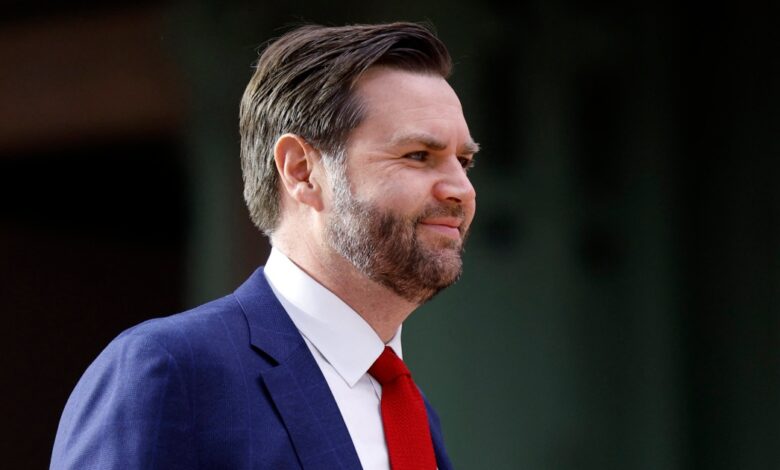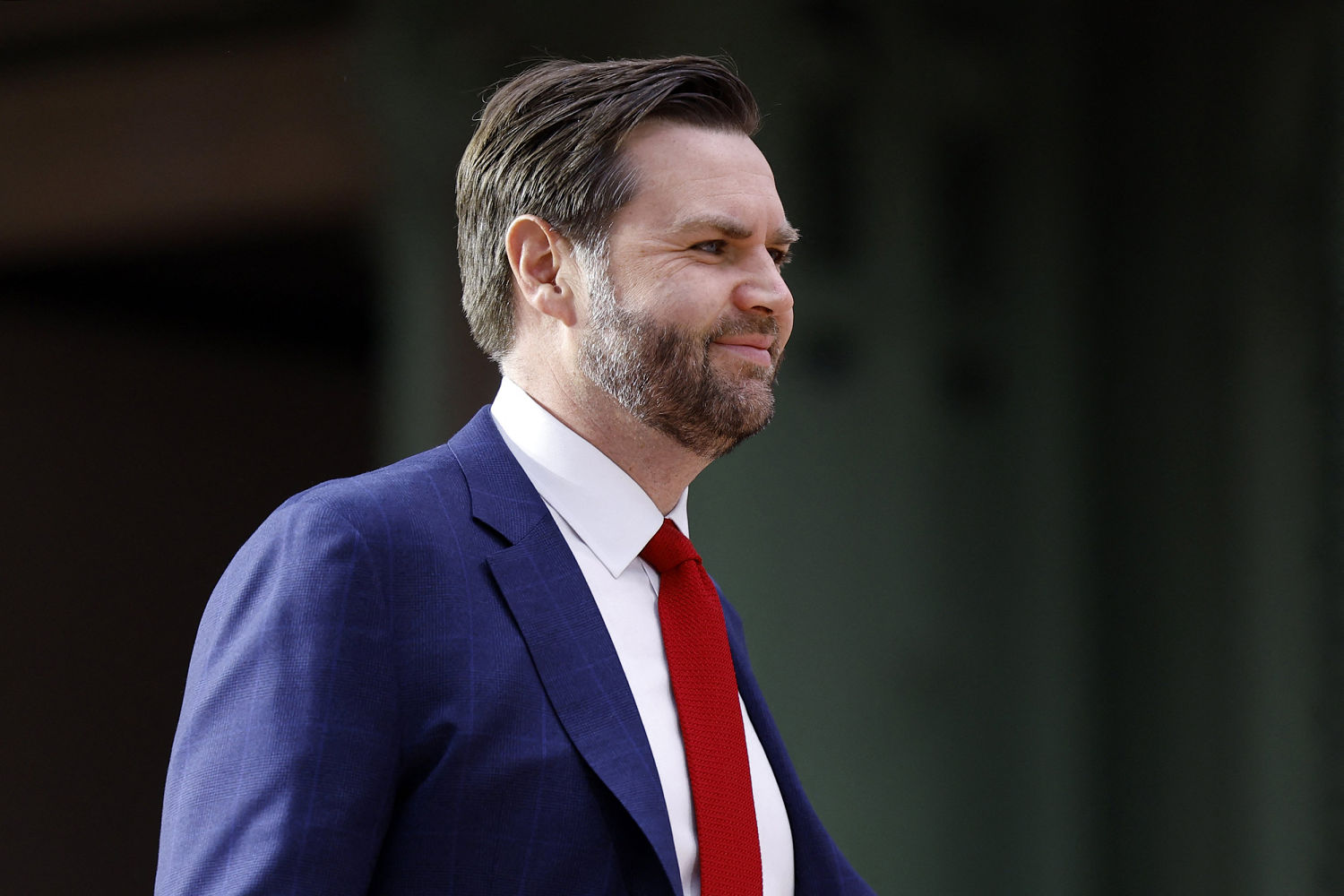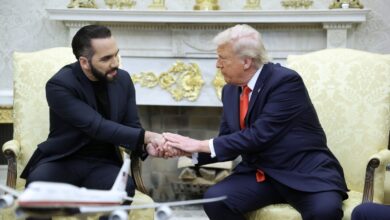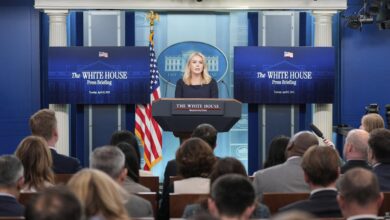JD Vance’s judicial branch challenge risks constitutional crisis


The term “constitutional crisis” gets overused. But Vice President JD Vance seems to be inviting one.
On Sunday, the vice president’s comments on social media raised alarm bells across the legal profession. Apparently in response to multiple judges temporarily halting some of President Donald Trump’s executive actions, Vance posted: “If a judge tried to tell a general how to conduct a military operation, that would be illegal. If a judge tried to command the attorney general in how to use her discretion as a prosecutor, that’s also illegal. Judges aren’t allowed to control the executive’s legitimate power.”
Wrong. Wrong. And wrong.
Judges are allowed to check the executive branch when it exceeds its authority. In fact, that’s exactly what they are supposed to do.
Courts have ruled against illegal military actions, such as striking down military commissions at Guantanamo Bay after 9/11. Courts have also ruled a prosecutor violated the equal protection clause of the 14th Amendment when engaging in selective prosecution. And, in the same way, courts serve as a check on presidents when they exceed their power. The Supreme Court famously struck down President Harry S. Truman’s efforts to seize steel mills during the Korean War on the grounds that his conduct conflicted with the Labor Management Relations Act.
Judges are allowed to check the executive branch when it exceeds its authority. In fact, that’s exactly what they are supposed to do.
Vance’s statement contradicts more than 200 years of Supreme Court precedent. Every first-year law student reads the case of Marbury v. Madison, the 1803 decision that confirmed the power of the courts to conduct judicial review. In our system of three co-equal branches of government, the role of the courts is to interpret the law. Courts strike down statutes passed by legislatures when they violate the Constitution. Courts also declare executive action illegal when it violates the law.
To date, judges have ruled against a number of Trump’s executive orders, at least temporarily, based on findings that plaintiffs have shown a substantial likelihood to succeed on the merits. The lawsuits include challenges to Trump’s efforts to end birthright citizenship, impound appropriated funds, shutter USAID, slash the federal workforce and permit Elon Musk’s Department of Government Efficiency to access Treasury Department payment systems. Courts have entered temporary restraining orders to preserve the status quo while the cases work their way through the legal system.
As a graduate of Yale Law School, Vance certainly knows that courts have the power to strike down executive actions that exceed legal limits. But he seems to be planting seeds to undermine public confidence in the courts.
And he is not alone. Posts popped up in an online chorus rebuking the courts that ruled against Trump. Vance quoted another post from conservative Harvard Law professor Adrian Vermeule, who wrote, “Judicial interference with legitimate acts of state, especially the internal functioning of a co-equal branch, is a violation of the separation of powers.”
Both Vance and Vermeule used the word “legitimate” to describe the president’s use of executive power, suggesting that it is the courts that are overstepping their boundaries. While people are free to criticize judges and to appeal their decisions, these attacks imply an abuse of power rather than a difference of opinion.
Musk joined in on the attack, posting a baseless accusation against the judge who ruled against the DOGE. “A corrupt judge protecting corruption. He needs to be impeached NOW!” In his post, Musk quoted another X user who referred to the judge as “unelected” and lacking a “mandate by the people.” Of course, under our Constitution all federal judges are unelected and are instead appointed by the president for life, for the very reason that they will be insulated from politics.
Whatever electoral mandate Trump enjoys does not give him license to violate the law.
Whatever electoral mandate Trump enjoys does not give him license to violate the law. He certainly has the authority to implement his policy agenda, but he must do so in a way that conforms to the federal statutes and the Constitution. Many of his executive orders seem to deliberately defy the law, perhaps in an effort to invite lawsuits that in turn push the limits of his power. Perhaps he hopes that ultimately a friendly Supreme Court will agree to expand the authority of the executive.
In 2021, while campaigning for the Senate in Ohio, Vance said he would “fire every single midlevel bureaucrat, every civil servant in the administrative state, replace them with our people.” Advocating for replacing federal employees with political loyalists is troubling enough, but Vance went on to advocate for defying court orders as well: “When the courts stop you, stand before the country, like Andrew Jackson did, and say, ‘The chief justice has made his ruling. Now let him enforce it.’” The Jackson quote, which may be a myth, relates to a Supreme Court decision that the Cherokees were an independent nation and entitled to live on their land. It makes the point that courts, unlike the executive branch, have no armies or police officers to carry out their rulings. Instead, they depend on the willingness of the other branches of government to obey their decisions.
The defiance of a court order by the executive branch would indeed be a constitutional crisis. Eventually, the only realistic remedy in that situation would be impeachment, and in recent history, we have seen that members of a president’s own party have been reluctant to vote against him. And if the legislative branch failed to come to the rescue of the courts, then the executive branch would become something the framers of our Constitution would find unrecognizable.
We would have not just a constitutional crisis but a constitutional tragedy.




